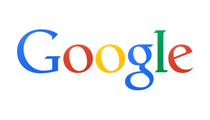This website uses cookies so that we can provide you with the best user experience possible. Cookie information is stored in your browser and performs functions such as recognising you when you return to our website and helping our team to understand which sections of the website you find most interesting and useful.
Business News Digital Top Stories
Google responds to News Corp criticism
By Chris Cooke | Published on Friday 26 September 2014
Google has responded to the previously reported letter from News Corp to European Union Competition Commissioner Joaquín Almunia, in which the Murdoch-controlled newspaper and book publisher criticised the web giant, accusing it of anti-competitive practices, and of failing to play its part in combating online piracy.
In a blog post, Google responds to various elements of News Corp’s letter, which was signed by the media group’s boss man Robert Thomson. The blog notes the various ways the web company has helped newspaper publishes, like News Corp, generate traffic through its search engine and sell content via its app store, and disputes the idea that, while Google began with good motives, it has become, in Thomson’s words, “a vast, powerful, often unaccountable bureaucracy”. Founders “Larry Page and Sergey Brin are still very much at the helm of Google” and continue to innovate, says the web firm’s response.
As for Thomson’s accusations that Google exploits its total dominance of web search in Europe for its own gain, the most serious allegation given Almunia’s competition law remit, the web giant in the main disputes that it is actually as dominant as New Corp suggests, especially in this smart-phone, app-based era of internet usage.
Says the blog post: “As The Economist reported last week ‘mobile devices have changed the way people travel the internet. Users now prefer apps to websites’ home pages’. In this world Google Search is an app alongside many others. The same article adds ‘the rise of social networks such as Facebook, Twitter and Pinterest … have become an important navigation system for people looking for content across the web’. It’s why many newspapers get an increasing number of referrals from Facebook and Twitter”.
And indeed that is true. Though you wonder whether that’s Google basically telling its advertisers to shift some of their SEO and Google ad spend elsewhere. However, “we’re not as big and important as News Corp says” isn’t the company’s only comeback to the anti-competitive charges, it also argues out that Google’s own YouTube does not nearly always score top in its web search rankings, as Thomson had suggested.
“A simple Google search for ‘videos of Robert Thomson News Corp’ shows content from the BBC, the Wall Street Journal, and Nasdaq ranked above anything from YouTube” the article points out. “We only show YouTube results when they’re relevant to a search query”.
As for the piracy points made in Thomson’s original letter, which, while not so directly relevant to Almunia, were very much of interest to the wider copyright industries, Google disputes that News Corp charge too; denying that, in Thomson’s words, the firm is “sometimes contemptuous of intellectual property”.
Not so, say the Googlers. “Google has done more than almost any other company to help tackle online piracy” it declares, before noting the web firm’s adherence to copyright takedown notices, and the system it has built to cope with the millions of takedowns thrown its way, proud that “the average take-down time is now just six hours”. Takedown notice data also impacts on search results, the blog adds, and look at all the money Google spent building the ContentID system on YouTube.
Google is a friend of the copyright owner, see? Though it’s not just News Corp who would ask why it is that – even when a court of law has deemed a site like The Pirate Bay to be liable for rampant copyright infringement, to the extent that it should be blocked by the ISPs – Google doesn’t proactively move to de-list any Pirate Bay links from its search engine, and any proxies that jump to the site, given what a good job the web firm did exiling Rap Genius from its search results that time the lyric site breached Google’s own rules.
That point isn’t discussed in the Google blog; though to be fair, Thomson didn’t specifically mention it in his original letter either. Perhaps he should add a last minute PS.






